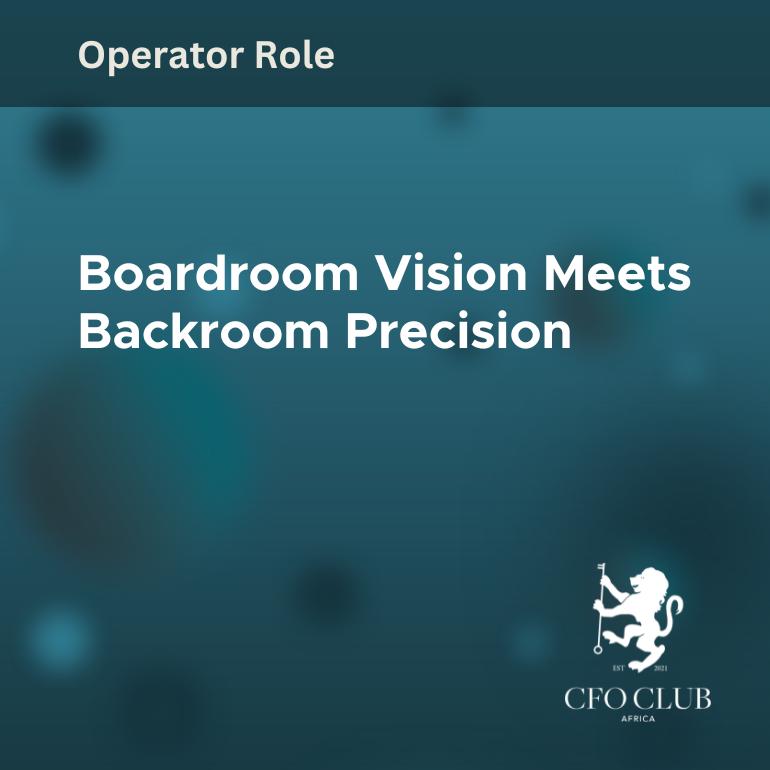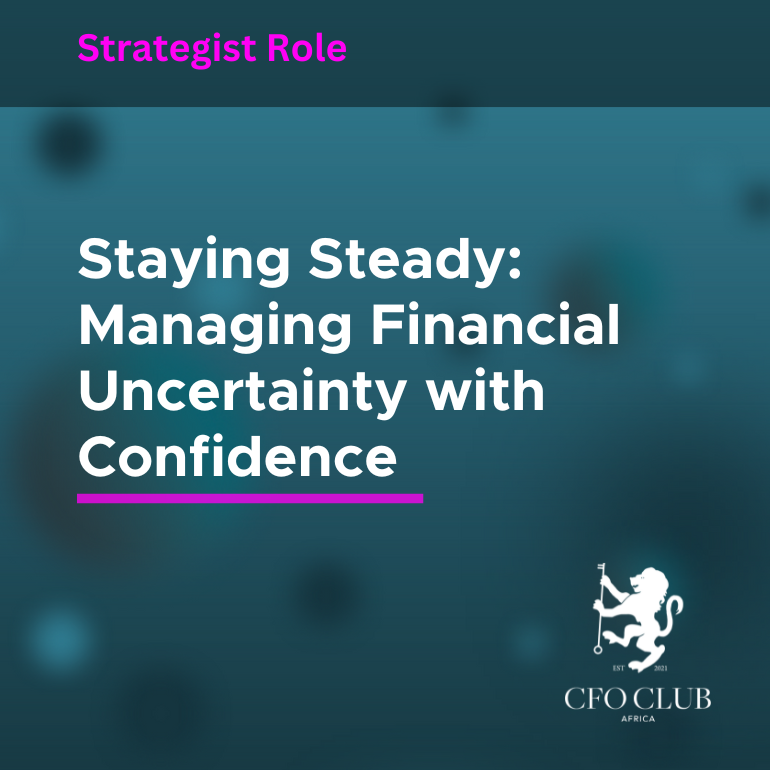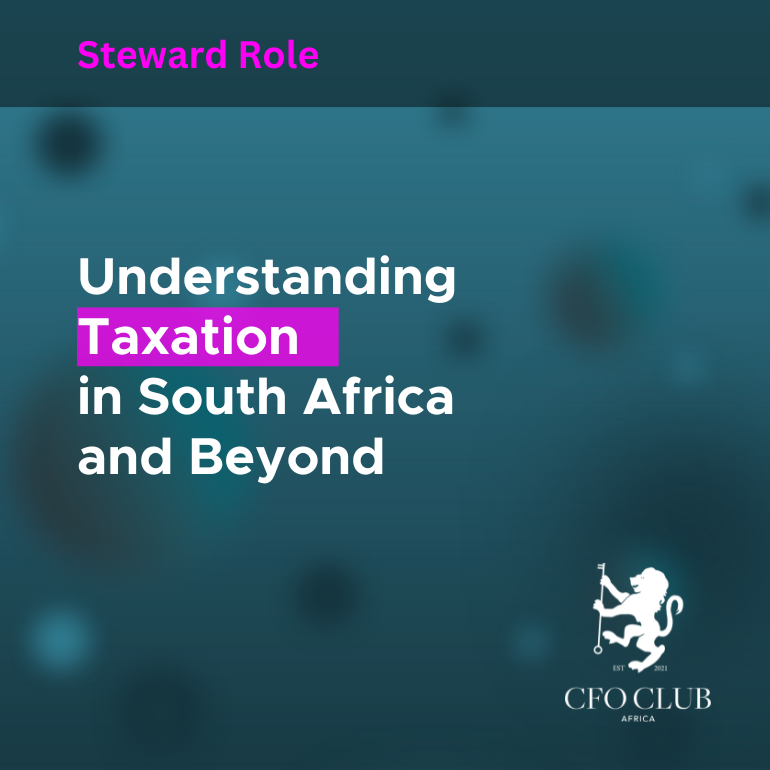Boardroom Vision Meets Backroom Precision
Boardroom Vision Meets Backroom Precision
There’s a reason people look at you when things go wrong, and a different reason they look at you when things go right. Welcome to life as a CFO. You are steering strategic direction in the boardroom while also making sure the day-to-day numbers add up. This is not just a job title. It is a constant balancing act between high-level leadership and deep operational involvement.
Let us unpack this dual role. Being a modern CFO means thinking long term, but never losing sight of the short-term controls that keep the business running smoothly.
The Strategist in the Spotlight
You are the voice of financial insight at the executive table. Boards, CEOs, and shareholders depend on you to guide the organisation’s direction. You are expected to provide clear advice on issues like expansion plans, capital structure, and financial resilience. You are not just a scorekeeper. You are the co-pilot.
Strategic thinking is not about corporate buzzwords. It is about understanding your industry, identifying risk, and giving direction that moves the business forward. Whether it involves planning for interest rate shifts or evaluating customer profitability, your guidance shapes what happens next.
The Operator Behind the Scenes
Behind every confident board presentation is a system of controls and processes that must work perfectly. This is where your operational lens becomes essential.
You are responsible for financial reporting accuracy, compliance with accounting standards, system integrity, and managing financial risks. Month-end delays, control failures, and unreliable data are not just back-office problems. They are obstacles to strategy.
A strong finance function enables the business to act with confidence. Good CFOs do not view the operational side as admin work. They see it as the foundation for everything else.
Knowing When to Zoom Out and When to Zoom In
Successful CFOs have mastered the skill of switching focus. At times, you must think like a strategist. At other times, you must get into the detail and fix what is broken. You might spend one day reviewing high-level investment models and the next reviewing VAT reconciliations or system access controls.
The role requires rhythm, clarity, and constant communication with your team. When the groundwork is in place, you can lead decisively at both levels. When it is not, everything else becomes reactive and slow.
Technology Is Your Accelerator, Not a Threat
Finance functions have changed dramatically. Automation has taken over routine processing. Cloud systems have replaced clunky spreadsheets. Artificial intelligence is beginning to support decision-making.
These changes are not a threat to your role. They are the tools that help you move faster and add more value. They free up your team’s time to focus on insights, not inputs. The modern CFO embraces change and builds a finance function that delivers real-time information, not retrospective reports.
Leading Culture Without Making a Sound
You might not always be the most vocal executive, but your influence is powerful. The questions you ask shape the quality of decisions around you. Your focus on ethics and discipline sets the tone for accountability. The way you respond to crisis sets the emotional rhythm for your teams.
Finance is about more than reporting. It is about building a culture of responsibility. Quiet leadership from the CFO’s office often has a louder impact than the most polished speech.
What You Need to Lead on Both Fronts
Balancing strategic leadership with operational precision is not easy. But it is achievable when you are clear on the tools and mindset you need.
Start with clarity. Be clear on where your time is best spent and what you need to delegate. Invest in systems that give you real-time, accurate data. Build a team that can manage the daily workload while you focus on what matters most. Make time to think, plan, and challenge assumptions. Most importantly, speak up when you see risk, waste, or drift. The business depends on your perspective.
This Is Not Two Jobs. It Is One Role Done Well.
It may feel like you are constantly flipping between two worlds. One minute you are in a strategy meeting, the next you are resolving a system issue or cash flow shortfall. That is not a flaw in the role. It is what makes the role critical.
Great CFOs do not choose between strategy and operations. They connect them. They ensure that what gets discussed in the boardroom can be delivered in real life. They make decisions with vision and follow through with discipline.
You are the architect, the builder, and the quality controller of the financial engine. And that makes you one of the most powerful enablers of growth in your organisation.





